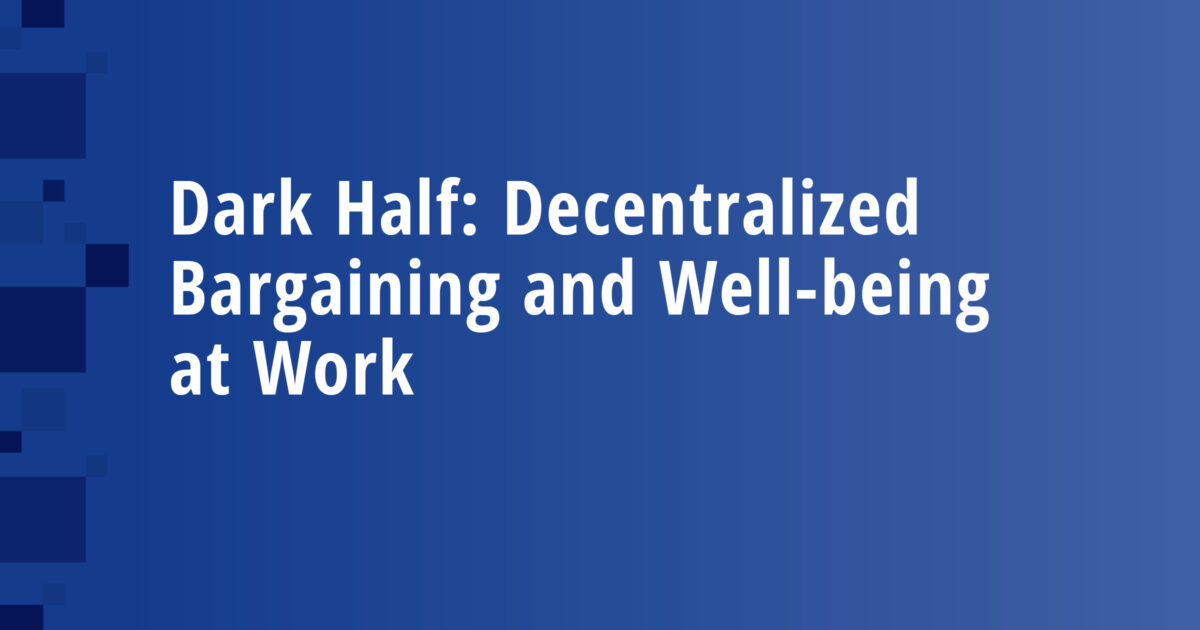
Using information on collective agreements and administrative data on mental ill-health, sickness absence, and job separations, we study the effect of decentralization on well-being at work in Finland. Our regression results with individual-and firm-level fixed effects show that decentralized wage bargaining leads to distinct outcomes for different employee groups. For example, white-collar employees in white-collar intensive firms show increased well-being at work. In contrast, all employees in blue-collar intensive firms show quite strong and negative responses to decentralization. Decentralization affects mostly job-separation behavior and mental ill-health, whereas no consistent effects for sickness absence are observed. Whether the mechanisms between decentralization and worker’s well-being is explained by pay dispersion, wage level, or different preferences toward wage policy needs to be explored further.